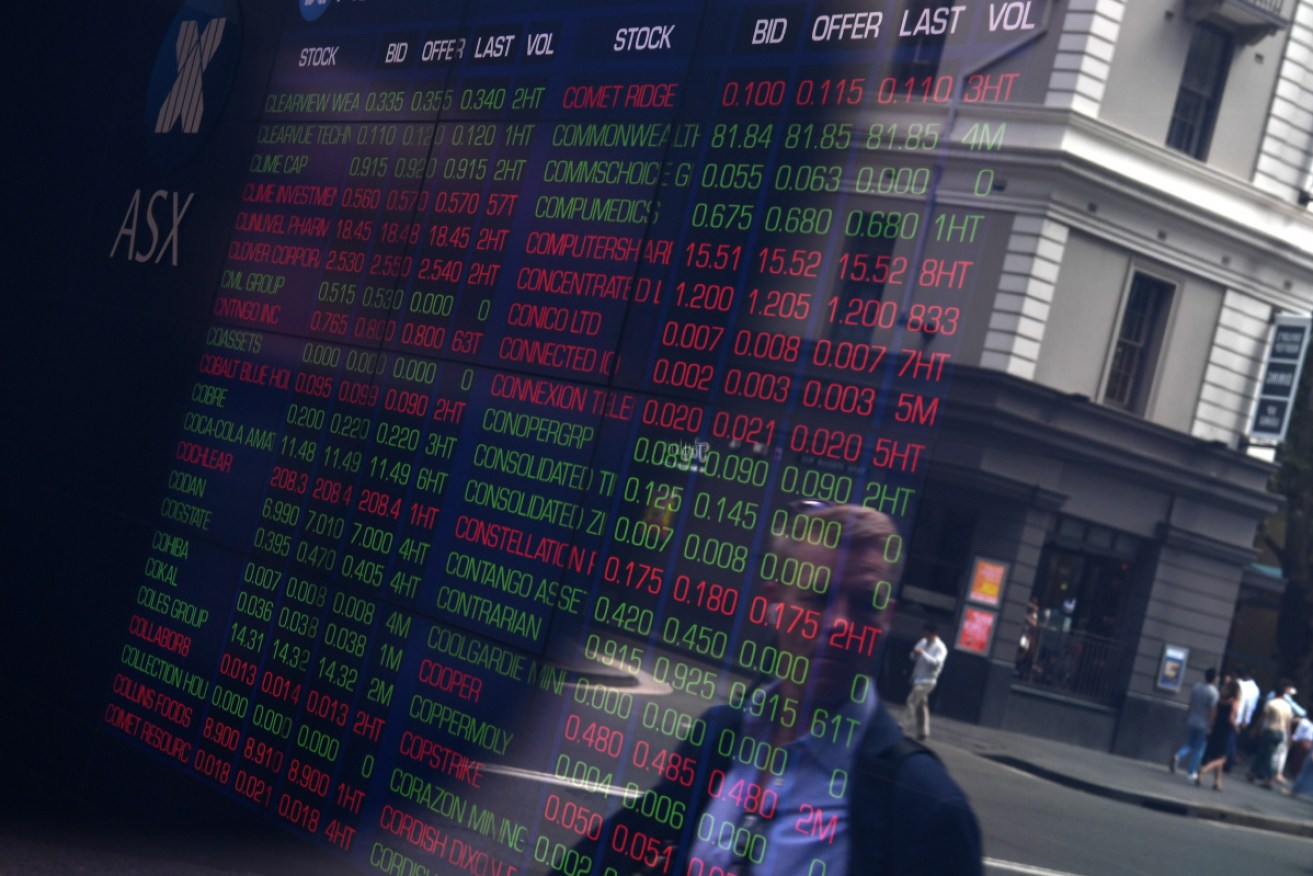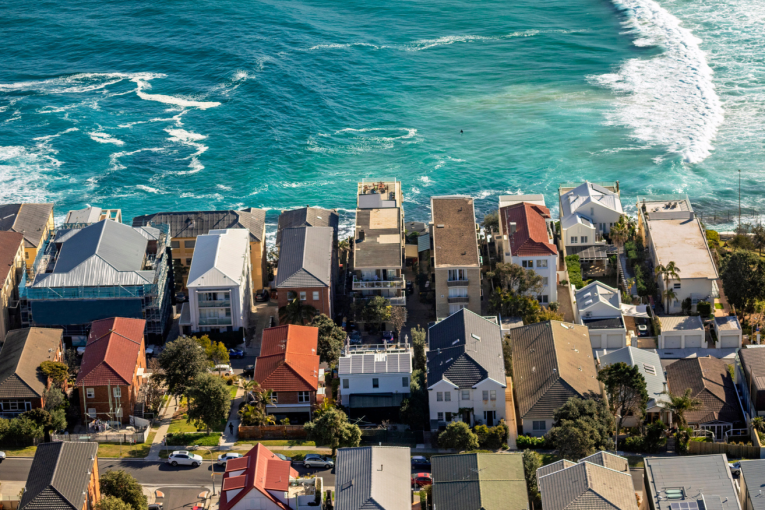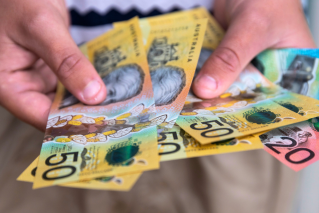ASX extends its seven-session losing streak, but losses moderate in afternoon trade

The ASX is down 2.8 per cent in early trade amid coronavirus fears. Photo: AAP
The Australian share market has extended its losing streak to a seventh straight session, despite a widely anticipated interest rate cut tomorrow, as the coronavirus-fuelled rout continues across the region.
By 2.15pm (AEDT), the All Ordinaries index was down by 0.8 per cent to 6459 points – well off the lows earlier in the session, when it fell as much as 3 per cent.
The recouping of some of the losses followed US stock market futures turning positive.
Monday’s falls come on top of around $240 billion that was lost on the local market last week.
More than half the stocks on the benchmark index – 126 of the top 200 – were still in negative territory, but a rise in the price of Brent crude oil sent the energy sector higher, while technology names including Appen (+5pc) and WiseTech Global (+7.5pc) also helped the recovery.
Shares in the major banks, ANZ (-1.9pc), Commonwealth Bank (-1.7pc), NAB (-2pc) and Westpac (-2pc) continued to underperform the broader market in afternoon trade.
Analysts at investment bank UBS have placed their ratings and price targets on the big four banks under review ahead of an expected rate cut by the RBA on Tuesday, which will place further pressure on banks’ already weak earnings.
Iron ore miner Fortescue fell heavily (-8.3pc), after a measure of activity in China’s manufacturing sector plunged to a record low in February.
The company is also trading without rights to its latest dividend payment, exacerbating the falls.
“The market remains concerned about the lack of pick up in industrial activity in China,” ANZ economist Adelaide Timbrell said.
“If there is no rebound by the end of the quarter, we suspect steel production, and thus iron ore demand, will be hit hard, putting further pressure on prices.”
Gold no ‘safe-haven’ this session
Gold miners were among the worst performers, with Silver Lake Resources (-5.6pc), Gold Road Resources (-7.6pc) and Regis Resources (-6.3pc) losing ground after gold prices fell sharply on Friday, before stabilising mid-way through Monday’s session
“Even gold’s safe-haven status couldn’t shield it from the selling,” ANZ’s Ms Timbrell said.
“With gold up over 10 per cent since the start of the year, investors in the futures market appeared keen to liquidate some of those gains as the losses in equity markets increased.”
Around the region, New Zealand’s benchmark index has lost 1.8 per cent, well of the lows of the session.
After opening lower, Tokyo’s Nikkei has pushed back into positive territory to be 1.1 per cent higher, while Seoul’s Kospi is up by 1.4 per cent.
It follows the worst week since October 2008, in the midst global financial crisis, for the ASX and Wall Street.
The Dow Jones index lost 12.4 per cent over the week, or more than 3,500 points.
On Friday, the ASX 200 was down more than 10 per cent from its record high posted the previous Thursday.
Markets expect Reserve Bank to cut rates
Markets have now fully priced in a 25-basis-point rate cut by the Reserve Bank when its board meets on Tuesday.
Calls to bring tax cuts forward to kickstart economy
Economists including Westpac’s Bill Evans want the Morrison Government to flush the economy with cash and get people spending again, writes Gareth Hutchens.
US Federal Reserve chair Jerome Powell has said the central bank is closely monitoring the coronavirus outbreak and the implications for the economic outlook.
“We will use our tools and act as appropriate to support the economy,” Mr Powell said.
JP Morgan chief economist Sally Auld said the fact that Fed officials are now actively discussing policy support, in addition to the downside risks to economic growth and financial markets pricing in the chance of a global recession, mean the case for the RBA to cut rates in March is clear.
“The [Reserve] Bank will be responding foremost to protect against the higher chance of global recession; officials’ commentary in recent months has highlighted that global developments could be an important driver of policy outcomes in Australia,” Dr Auld said.
“While we are forecasting a 25bp cut tomorrow, we acknowledge that the chance of a 50bp cut is not small.
“The RBA are 50 basis points from the effective lower bound. In this context, conventional central bank wisdom suggests that the policy of least regret is to move quickly once it becomes clear that there are material downside risks to the modal forecasts for growth and inflation.”
A second 25-basis-point rate cut is priced in by June.
Economists at Westpac have changed their forecasts and now expect the RBA to deliver two 25-basis-point cuts, tomorrow and in April.
Westpac chief economist Bill Evans described the comments from Fed chair Jerome Powell as “a highly unusual unscheduled intervention”, likely to be seen as a “call to action” for other central banks.
Surging house prices complicate rate cut plans
However, research house Capital Economics has kept its forecast for the next RBA rate cut to occur in April, due to the housing market resurgence.
National dwelling prices rose 1.1 per cent in February, according to the latest figures from CoreLogic, with most capital cities now back at record highs.
“The continued strength in house prices suggests that the Reserve Bank of Australia won’t be as eager to cut rates as many are anticipating,” senior Australia and New Zealand economist Marcel Thieliant said.
“All the leading indicators suggest that prices will keep rising at a rapid pace. However, affordability is deteriorating rapidly and we expect price growth to slow from 10 per cent this year to 5 per cent next year.”
Westpac’s Bill Evans is forecasting a 50-basis-point cut from the Federal Reserve this month, followed by a 25-basis-point cut in April.
Westpac has also reduced its near-term forecast for the Australian dollar from 65 to 63 US cents.
Reuters reported that Australia’s financial regulators – including the RBA, the Australian Prudential Regulation Authority and the Australian Securities and Investments Commission – will hold an emergency meeting today to discuss the impact of the coronavirus.
The Australian dollar was already trading at fresh 11-year lows – having hit a low of 64.58 US cents earlier this morning.
By 12:50pm (AEDT) it was fetching 65.20 US cents.








